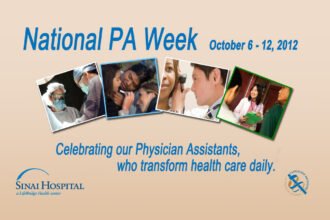Last week I was reminded by Lance Gardener, Chief Executive of the Care Plus Group in Grimsby that people don’t become ‘empowered’, they only become ‘disempowered’ by the treatment they receive from some other authority and power.
Last week I was reminded by Lance Gardener, Chief Executive of the Care Plus Group in Grimsby that people don’t become ‘empowered’, they only become ‘disempowered’ by the treatment they receive from some other authority and power.
So why is it that we still think of patients as passive objects rather than active subjects who can collaborate in their own health? This was a question posed earlier this year by Professor Bas Bloem in the excellent presentation he gave at the Future of Healthcare TedX Conference in Maastricht. And that same question was bought into sharp focus for me last night by Jon Snow’s Channel 4 Dispatches “Can You Trust Your Doctor?” programme which investigated the appalling failures of some GPs to even attempt to provide proper diagnosis when confronted by red flag symptoms.
It showed the cracks that allow negligent doctors to continue to play God and deliver dangerously poor practice even after they have previously been identified as a risk. It also demonstrated how those who are able to clearly articulate their symptoms can be blatantly dismissed and disempowered. Surely there are proper measures are in place to stop such events occurring anywhere within the NHS, and if mistakes are made they are quickly corrected? It would seem not. Even where rogue GPs were identified, the failure of Primary Care Trusts to carry out their duty of care and report against practices was starkly highlighted.
Surely then, the General Medical Council, the body responsible for licensing doctors, has all the safeguards in place to ensure that bad GP’s are removed from the system? Sadly not. The limp responses from Niall Dickson the Chief Executive of the GMC, illustrated not only an organisation in denial, but one that has yet to put even basic checking procedures in place, despite them being a key recommendation of the Shipman Enquiry. Maybe there’s a wider perspective that the programme didn’t cover, but Niall Dickson, as a former journalist, should know how to (at least) manage the message and leave us feeling confident that the GMC is doing its job properly. He didn’t.
What Dispatches showed was a truly shocking, but not necessarily surprising, expose of a basic failure of our health system. And set against a back-drop of reforms that stipulate ‘no decision about me’, will take place ‘without me’ being involved, this programme leaves us no closer to understanding how we bridge that cultural chasm, the power divide between patients (people!) and practitioners.
The fact is that people die unnecessarily because of the sloppy delivery of care in GP surgeries. No amount of white papers or rhetoric about choice or shared decision making is going to change that. What we need are tangible examples and real stories of good practice that show how engaging with patients properly can be both cost effective and lead to improved safety and better health outcomes.
Professor Bas Bloem’s ‘From God to Guide’ presentation illustrated the stark contrast between bad and good practice. He started it by hoisting himself up on a fork lift so he could diagnose and prescribe to his patient down below, typical of the clumsy way in which we can often expect to be treated. His main point is that if we treat patients as active subjects and work together on a mutual basis, we can unlock the potential of people to actively influence their health outcomes for the better. It is a very powerful and moving presentation and I highly recommend a look:
Patients want to be taken seriously; they want to take an active role in their healthcare and Bas Bloem says it’s time for doctors to descend from their ivory towers and to become a guide, a coach in the life of patients. These are new roles for both patients and doctors but that doesn’t mean the patient will take over and become the boss – it simply means that collaboration can be significantly beneficial to both parties.
I loved Bas Bloem’s presentation and, as somebody who delivers new technology, I loved what he had to say about that too. He said the world of the patient is not one that should be dominated by ICT, gadgets or apps; these tools can play an important role in supporting a new type of care, but they should always have one goal – to serve warm human communication between people. Since I saw this presentation in Maastricht I have adopted that premise for our business ensuring we approach the development of KYOH, not as a product (gadget, app, or anything else), but as a catalyst that will facilitate better, warmer more equitable human relationships.







